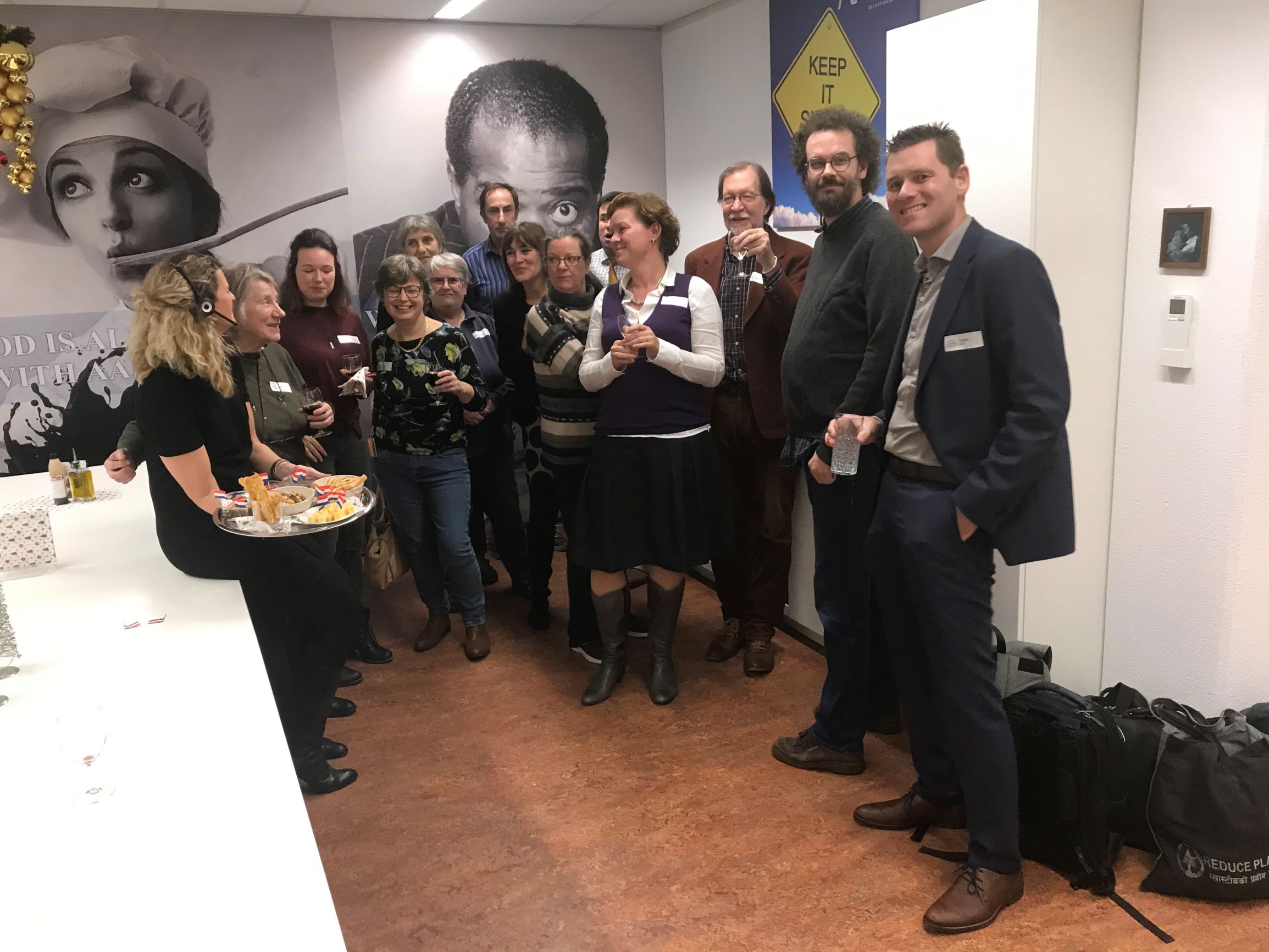
Photo by John Hynd
Whether it’s a blue envelope through the door or an email announcing Bericht van de Belastingdienst in uw Berichtenbox op MijnOverheid, either one is likely to fill you with dread at worst and irritation at best. So it’s no wonder so many SENSE members travelled to Delft on 10 December for the seminar Understanding Dutch tax for freelancers hosted by AAme Tax Consultants.
Tax advisor Quintin Eadie kicked off the proceedings with a comprehensive overview of the Dutch tax system. Among several subjects, he covered income tax procedures for filing returns, the benefits of having a fiscal partner such as a spouse or registered partner, and the different types of taxable income. He then went on to present proposed future changes to the Dutch tax system. These include a two-tier tax bracket system from 2021 onwards, the abolition of study costs as a deductible expense and the limitation of tax deductions to the lowest bracket. Of these changes, limiting tax deductions may have the biggest impact on freelancers. Although we will pay more tax in the long run, this may be offset by higher tax credits. This is by no means certain, however.
After a short coffee break, certified public ccountant Pauline Deelen-Aarts gave a presentation on BTW (Dutch VAT). She talked about the different categories of BTW – exempt, 0%, 9%, 21% – and where they apply. She also covered changes to the Kleine Ondernemersregeling and how to reclaim BTW paid on a bad debtor. Most importantly, Pauline highlighted the new BTW numbers coming into effect in 2020. Your new BTW number must be stated on your invoices and website (if applicable), but your old BTW number must be used in your BTW returns and any correspondence with the Dutch Tax Office. Nothing is simple when it comes to Dutch taxes!
During the BTW presentation, Jenny Zonneveld raised a question on behalf of SENSE members who have been approached by Scribbr, an online editing service for students. Besides paying low rates, Scribbr does not charge BTW, since it describes its services as ‘remedial teaching’ and therefore BTW-exempt. As this assertion is new to many SENSE members, we asked Pauline’s opinion. AAme will get back to us in due course.
Ronald van Leeuwen, certified public accountant, finished off the seminar with a presentation on fiscal benefits and various tips and tricks. He emphasized the importance of good administration and careful record keeping, including a daily record of hours spent on work and business activities. He also covered use of a company or private car and the SME profit relief, both of which are relevant to freelancers.
Like other attendees, much of the information presented was familiar to me, but it was good to be reminded on some points and have my mind put at rest on others. And as always, it was great to get together with other SENSE members and hear their tax experiences.

